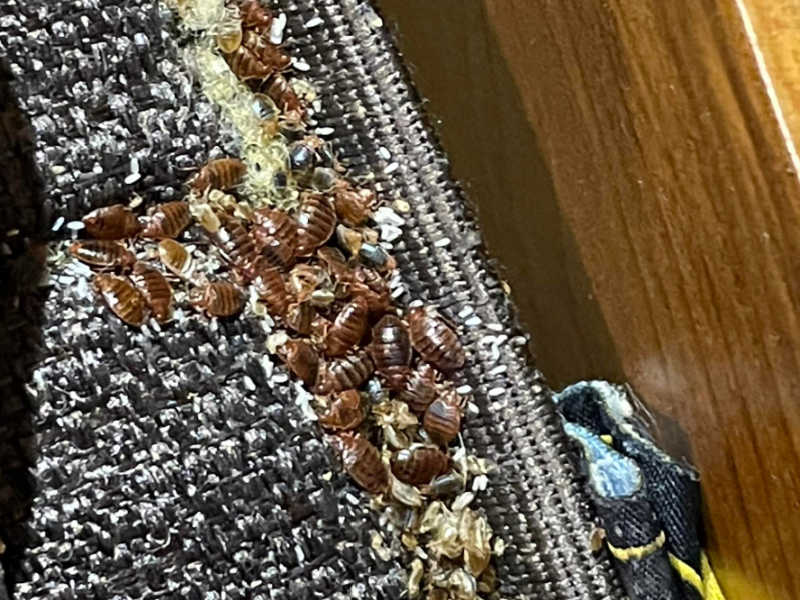The thought of having bugs in your bed is enough to give anyone the creeps, but did you know that bed bugs are a nuisance pest that many people find themselves dealing with on a daily basis in our local area.
Bed bugs can easily be transferred from one bedroom to another through people’s clothing and belongings, making them very difficult for home owners to even attempt to treat.
The question most people want to know is ‘how do I know if I’ve got bed bugs?’. There are a few tell tale signs that you are experiencing a bed bug problem at home.
If you are experiencing any of the following, it’s time to call in a licensed pest controller such as ourselves, Perimeter Pest Control to confirm your suspicions and treat the area for you.
- Do you feel like something is biting you as you are sleeping?
- Are you noticing raised or red bite type marks on your body?
- When changing the bed sheets have you noticed any small dark spots on bed linen?
- Have you noticed anything that looks like insects or skins of insects around your bed frame or mattress?
- In severe infestations you will likely notice an odd smell coming from the affected rooms.
What do bed bugs look like?
Bed bugs are a small oval insect that are visible to the human eye. They turn from cream to brown in colour as they mature and on average are around 4 – 6mm in length.
Do bed bugs bite humans?
Yes, they do bite. Bed bugs need blood as a food source and unfortunately humans become their target. Their bites often look similar to a flea bite and home owners sometimes get confused assuming they have a flea problem at home.
Not everyone reacts the same to bed bug bites, some people get very swollen raised itchy lumps all over their body, whereas others may not have such a severe reaction.
For more general information about Bed Bugs and how to treat bites visit, Health Direct
How do you get bed bugs?
Bed bugs can be travel between households when people take belongings such as suitcases and clothing from one place to another. They can also easily walk small distances from one room to another in a household environment.
It’s often thought that low budget short term stay accommodation places have been a source of bed bug issues, but these days they seem to be a more widely spread issue and are also commonly found in residential homes.
Where to look to see if you have bed bugs?
If you have a bed bug infestation you will usually find them in around the edges of the stitching on your mattress and along the bed frame. You will generally see some black dots, which are their faeces, along with seeing some bed bugs. Bed bugs also get into cracks and crevices which can make it difficult to treat them.
Below is an image from a recent bed bug removal job we treated in Newcastle.

How do I get rid of bed bugs?
It’s very difficult to eradicate bed bugs successfully in a single treatment, especially if the area is heavily infested. A professional pest control technician will need to be engaged to conduct a thorough inspection and put together a treatment plan. Several follow up treatments are often required to ensure that bed bugs are completely eradicated from a property. Our licensed pest control team will be able to assist you with bed bug removal, call us on 0427 571 447.
More info, refer to ‘Code of Practice for the Control of Bed Bug Infestations in Australia’.
What areas do you offer Bed Bug Removal Pest Control?
We offer bed bug removal pest control services in Newcastle, Port Stephens, Lake Macquarie and Maitland areas. We also offer a broad range of pest management services such as general pest control sprays and termite management sytems.
To book a bed bug pest control service, call us on 0427 571 447. Alternatively, you can click here to submit an enquiry.
Shane Turner – Perimeter Pest Control, Newcastle & The Hunter
Our pest control service region includes Newcastle, Lake Macquarie, Port Stephens & Maitland
*This article is intended as general information only, always seek professional advice from a licensed pest controller to determine the best outcome for your individual situation. If you live within our service region, we're happy to help!
